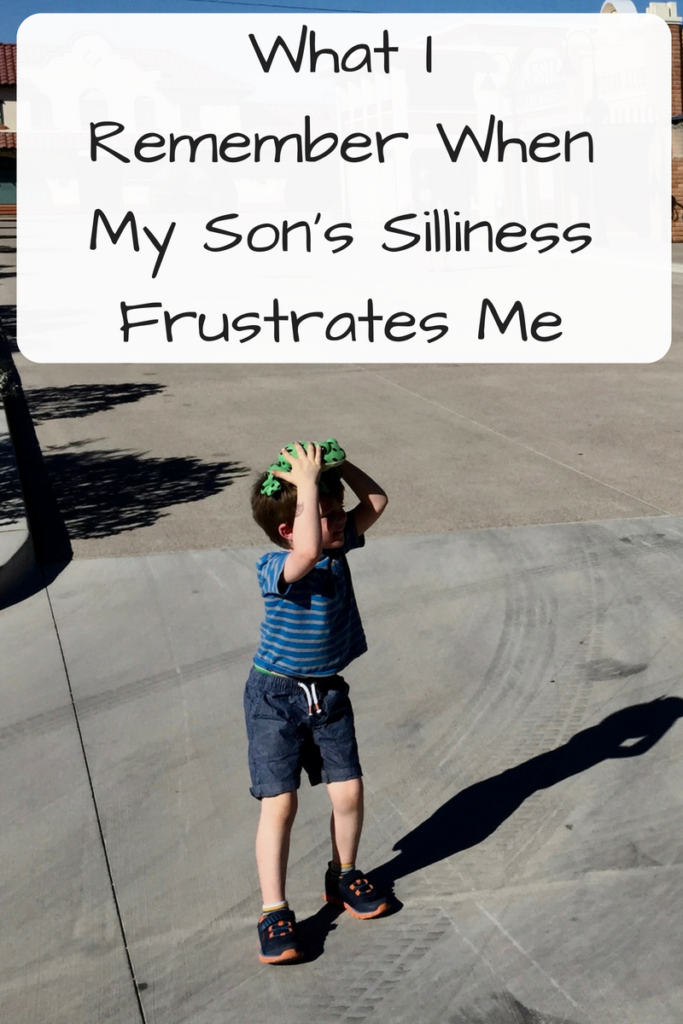
“What did you do at preschool today?” I ask my four-year-old son.
Silence. And then, he yells, “Boobie-chang sweet barbershop!” So much for anything resembling a coherent answer. I will never have any idea what that phrase means.
On other days, I ask that exact same question and I get, “We learned about grasshoppers! Daddy told me that there are grasshoppers that don’t fly!” And we’re off to the races. It’s a barrage of information, but it’s a lucid and informative one.
It can give you whiplash.
You’d think I’d be used to the unpredictability. But no, I always expect the logical answer.
When he gives me nonsense, I want to yell, “Just give me a reasonable answer! I just want to connect with you!” I want to hear about his school day and his pretend play and everything that’s going on in that little head. Some days I say, “Just please answer the question.” Other days, I sigh and let him ramble.
While it’s frustrating in the moment, it’s much worse that I let it affect my long-term perspective of him. In my lesser moments, I think of him as being a wiseass or worse, trying to undermine me. I think, “I know he can talk in reasonable ways! So why won’t he?” Then I wonder if I’m doing something wrong or need to “fix” him somehow. That is a deeply unhelpful road to start down.
When I begin wandering down that path, I’ve instead been trying to detour to a healthier place. I’ve been trying to remember that he’s just a child and more importantly, that he’s my child. Four-year-olds are often nonsensical, especially when you don’t want them to be. (At least he never spoke in cat meows for hours at a time like some of his classmates.) They’re odd, strange little creatures. As adults, we can’t know what’s going on in their little brains because they’re so different from ours. And sometimes, they really are just wiseasses.
On top of that, my son has some language and possibly attention issues that make getting the words out of his mouth difficult. Over time, I’ve realized that he often resorts to nonsense when he’s having trouble translating his thoughts into words. He does it most often when he’s tired or overstimulated. When an adult asks a question, he knows he needs to answer it, otherwise they just ask him again. It’s easier to say something ridiculous than logical. Instead of getting mad, I’m trying to acknowledge that he’s struggling at those times too.
It really comes down to learning to accept and live in this transitional space. He’s definitely a kid, not a baby or toddler. Yet he’s not grown up enough to have well-developed conversational or social skills. Sure, he’s capable of having good conversations on a variety of topics. But his attention and ability to communicate are like a battery that doesn’t store much energy; he runs down quickly and takes a long time to recharge. Asking him to draw from a drained battery isn’t fair to him or helpful to me.
Instead of blaming him or myself, I’m trying to remember it’s just a stage. A stage that can frustrate me or enthuse me, depending on how I look at it. A phase that will soon be gone, with all of its challenges and wonders.
For more on accepting our children for everything they are, check out Learning to Love My Son Exactly Where He is Standing. For more honest stories of parenting, follow us on Facebook.